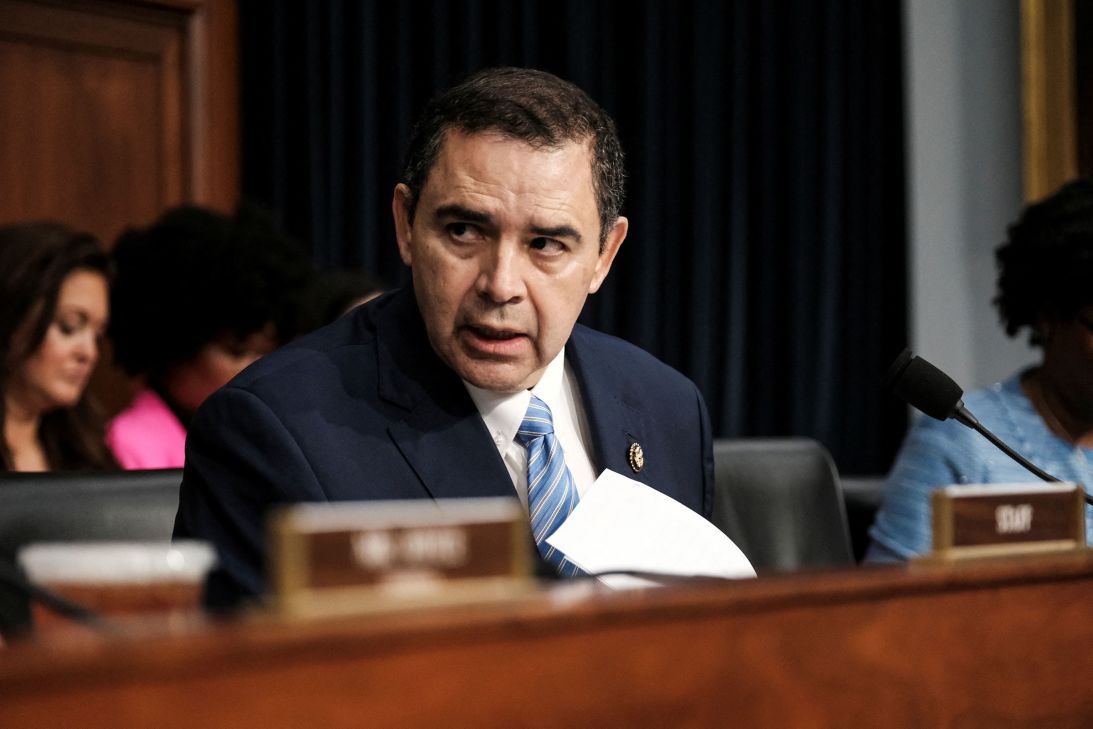In redrawing their congressional maps, Democrats in California and Republicans in Texas are making the same bet: Things won’t get much worse for them in next year’s midterm elections than they were in 2024.
Both states’ legislatures last week approved new maps aimed at adding up to five more favorable US House districts for the parties pushing the changes. The Texas GOP’s redistricting effort came at President Donald Trump’s urging; the California Democratic maps were Gov. Gavin Newsom’s attempt to cancel Texas out.
The new maps are not yet guaranteed. Both face legal challenges, and in California, voters must sign off this fall on overriding the previous maps put in place by the state’s independent redistricting commission.
If both are in place, they would narrow the list of battleground House districts in the 2026 midterm elections. But both states would still likely see several competitive races — contests where changes to demographic trends, or shifts in Trump’s popularity, could tip the outcomes.
Another wrinkle: Turnout in midterms tends to be significantly lower than in presidential years, making it even harder to predict 2026 outcomes based on a 2024 contest in which Trump attracted huge numbers of low-propensity voters to the polls.
In Texas, Republicans hope the massive gains the party has made with Latino voters during Trump’s decade as its leader will continue — a trend that could hand them two Democratic-held seats in the Rio Grande Valley.
However, Republicans will have to topple two Democratic incumbents with a history of outperforming their party: Rep. Henry Cuellar in the Laredo-based 28th District and Rep. Vicente Gonzalez in the 34th District, which now stretches from Brownsville to Corpus Christi.
Cuellar, in particular, has a long history of surviving tough contests. In 2024, he fended off a stout primary challenge and won reelection by nearly 6 percentage points, despite Trump winning there by 7 points. He did so despite a May 2024 federal indictment on bribery, money laundering and conspiracy charges; a judge this month dismissed two of the 14 counts he faces and moved his trial to next year. Cuellar has denied wrongdoing.
He opposes abortion rights and is the most conservative Democrat in the House — positioning he has long argued fits well with his district. Cuellar told CNN that Republicans are wrong to think that Latino voters who backed Trump are now aligned with the GOP.
“Down here in South Texas, they’re banking that they voted for Trump, and it’s going to be a generational change where they’re going to vote for other Republicans,” Cuellar said. “It didn’t happen in ’24. People split their votes. Definitely, we’re going to see people do the same thing.”

He pointed out that while Republicans did make the 28th District more favorable to them, shifting it to territory Trump won by 10 points in 2024, he’d previously represented new parts of the districts — prior to the last time the maps were changed, in 2021, following the 2020 US Census.
Cuellar also argued that some Latino voters have buyers’ remorse over Trump, after watching him impose tariffs and launch a massive deportation effort.
“Because of two reasons — high prices and the deportation of good people — I think definitely there’ll be less people definitely voting for Republicans, and they’ll be supporting Democrats,” he said.
Some Republicans are also warning that a five-seat gain in Texas isn’t certain.
Texas state Sen. Phil King, who sponsored the new maps that the Senate approved late last week, issued a warning when introducing them on the chamber floor Friday.
“I believe this map is more competitive, but there are no guarantees that it’ll elect more Republicans,” he said.
Former House Speaker Kevin McCarthy, a California Republican who is raising money to oppose the new Democratic maps in this fall’s election, on CNN recently warned that Republicans’ new Texas map is based heavily on Trump’s performance there.
“That doesn’t mean the Republicans did well. President Trump did well; those were President Trump voters,” McCarthy said. “I think that stuff always blows back on you.”
In California, meanwhile, Democrats are also betting against backsliding from the party’s 2024 performance.
The new California maps include three GOP-held districts that Democrats will be heavily favored to flip. But two more Republican-controlled seats the new maps were drawn to target could be much more competitive.
Rep. Darrell Issa is being shifted from the deep red 48th District in southern California into one that narrowly favored Democrats in 2024.
The new maps also add more Democratic voters to the 22nd District represented by GOP Rep. David Valadao, which includes parts of Bakersfield and stretches north.
However, Valadao, much like Cuellar in Texas, has proven difficult to beat. He won a Central Valley congressional seat in 2012, was ousted in 2018, but won the seat back in 2020. Just as Cuellar is the House’s most conservative Democrat, Valadao has positioned himself as a moderate. He was one of 10 Republicans to vote to impeach Trump in 2021 — and one of just two to retain his seat after doing so.
Valadao told KGET last week that he believes he can win reelection in the new 22nd District, noting that Trump narrowly won it in 2024.
“Do I believe it’s a tougher district to run in? Absolutely, than what I have today. Is it un-winnable? No, absolutely not. I do believe I can win it. It encompasses a lot of the old parts of Fresno that I’ve had for almost a decade before the last redistricting,” Valadao said.

There are also several Democrats who could still face competitive reelection bids next fall.
The new maps are intended to give Democratic Rep. Adam Gray, who won the closest House race in the nation in 2024, an easier path to reelection in the 13th District in Central Valley. But the district shifted just six points in Democrats’ favor, and the heavily Latino makeup of the district could further tighten the margins if the GOP is able to build on the gains Trump has made. Gray is likely to remain a Republican target next year.
Another Democrat in a competitive seat, Rep. Derek Tran in the Orange County-based 45th District, saw his district become slightly more Democratic, but not enough to shift it off the list of potentially competitive races.
CNN’s David Wright and Ethan Cohen contributed to this report.
